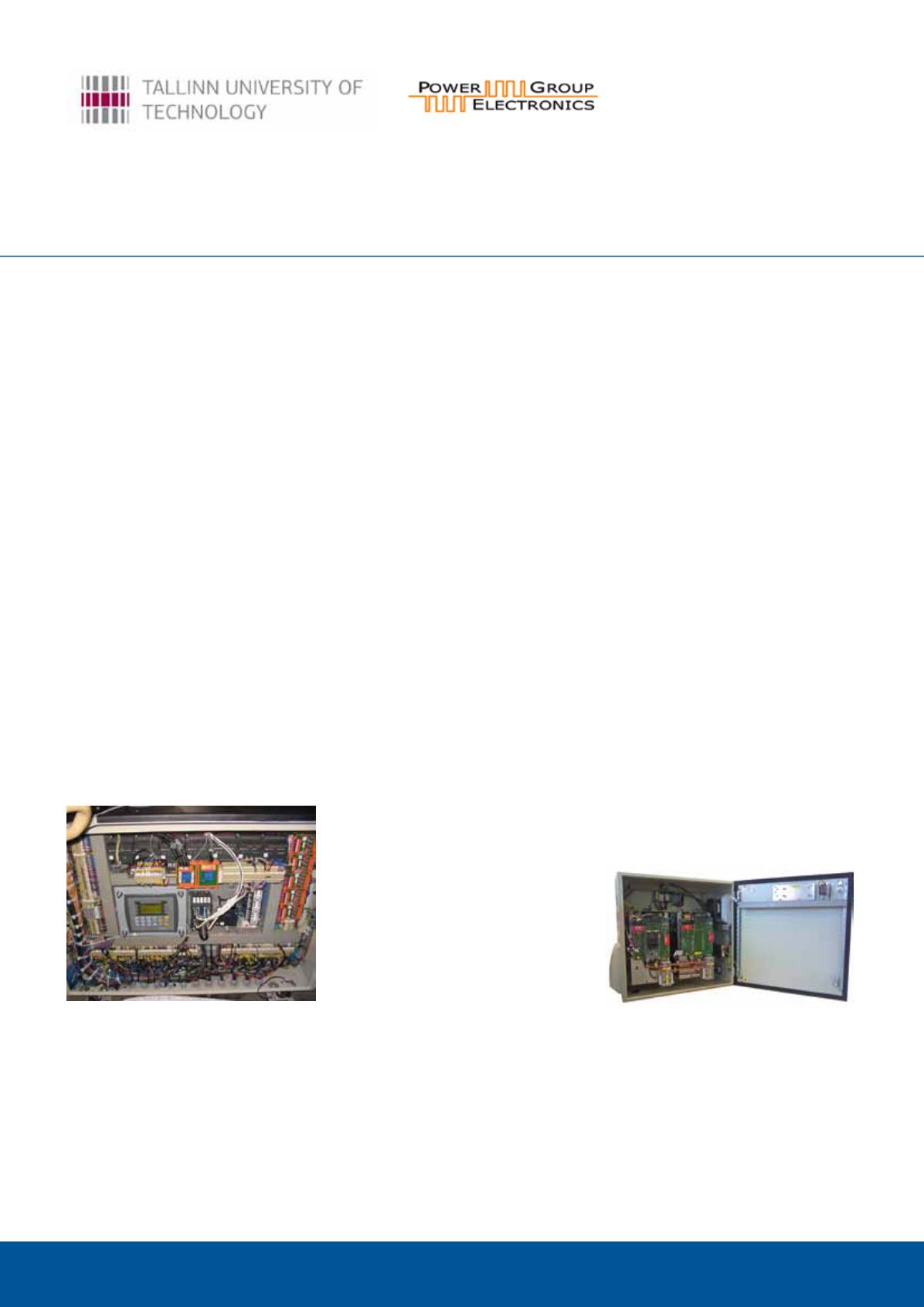
164
Power Electronics Group
Department of Electrical Engineering
Tallinn University of Technology
Research in the Group is focused on the
development and experimental validation
of new state of the art power electronic
converters for such demanding applica-
tions as renewable energy systems, roll-
ing stock, automotive and telecom. Key
research directions include synthesis of
new converter topologies, development
of special control and protection algo-
rithms, implementation of new compo-
nents and elaboration of design guide-
lines to further improve the efficiency,
power density, reliability and flexibility of
the on-market power electronic converters.
Other research activities are concentrated
on the development of power flow con-
trol algorithms and new supervision, fault
detection, protection and communication
methods for the electronic power distri-
bution grids (Micro- and SmartGrids).
Key Research Fields & Competence
Areas:
Research and development of power
electronic converters for renewable
energy systems:
•
Power conditioning units for fuel cells
and solar panels
•
Integrated multiport converters for
hydrogen based long- term energy
storages
•
Power electronic transformers
(solid state transformers)
•
Interface converters for small- or
medium-scale wind turbines
Research and development of power
electronic converters and auxiliary
systems for rolling stock applications:
•
Traction and auxiliary converters for
light rail vehicles
•
High-voltage IGBT based converters for
electric and diesel-electric locomotives
and/or trains
•
Remote control, diagnostics and data
communication systems
Research of advanced converter topol-
ogies (Z-source converters, high gain
step-up converters, etc.) and state of
the art components (SiC, GaN and GaAs
semiconductors), planar magnetics,
high-voltage IGBTs, etc.
Our Highlights:
•
Well experienced and dynamic team
of young researchers and engineers
•
Long-lasting experience in applied
design of power electronic converters
for different power ranges and appli-
cations
•
Strong relations and cooperation with
Estonian and Baltic industrial companies
•
Strong relations with European univer-
sities and research institutions
•
Modern laboratory facilities and infra-
structure:
- Small-scale Microgrid with alternative
and renewable energy sources for
research and teaching
- Fast prototyping tools for speedy
assembling and experimental verifi-
cation of new ideas and concepts
- EMC laboratory
- Up-to-date simulation tools
•
Project-based PhD programs with
research oriented theses
•
Active participation in EU funded
programs and joint research projects
Tallinn University of Technology


